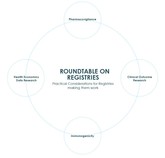Biosimilars
Biosimilars in Japan: an overview
No regulations on interchangeability exist in Japan and switching between a reference product and biosimilar is often impractical, according to a letter recently published in The Lancet Oncology [1].
Canada approves rituximab biosimilar Riabni
Canada’s drug regulator, Health Canada, has approved the rituximab biosimilar Riabni for the treatment of rheumatoid arthritis as well as chronic lymphocytic leukaemia and non-Hodgkin’s lymphoma.
Regulatory landscape for similar biotherapeutic products in Latin America
Most Latin American countries are in the process of or have already established their own regulatory guidelines for similar biotherapeutic products (SBPs), and there are regional recommendations on how to ensure the safety and efficacy of biosimilars.
Biosimilar pipelines for South Korean firms: LG Chem and GC Pharma
Biosimilar makers from South Korea are making their mark, not only in South Korea, but around the world when it comes to biosimilars. Celltrion Healthcare (Celltrion) and Samsung Bioepis (Samsung and Biogen’s joint venture) are already becoming major players in the world of biosimilars. While, other Korean companies, such as LG Chem Life Sciences (LG Chem) and GC Pharma (formerly Green Cross) are also expanding their biosimilar pipelines.
Biosimilar epoetin in the US – barriers and recommendations
A review of biosimilar epoetin, which is used to treat cancer and chemotherapy-induced anaemia, shows variable uptake in the US. The authors conclude that safety and pricing considerations are the primary determinants of uptake and make recommendations to increase usage [1].
Canada approves pegfilgrastim biosimilar Nyvepria
Canada’s drug regulator, Health Canada, has approved the filgrastim biosimilar Nyvepria (PF-06881894). The drug can be used to treat neutropenia (a lack of white blood cells) in cancer patients.
Demand for similar biotherapeutic products in Latin America
Development of biologicals has experienced steady growth over the past three decades. Expiration of patents on many originator biologicals, such as insulin, human growth hormone and erythropoietin, has opened the door for the development of biosimilars. The high cost of biologicals, however, has limited their accessibility, particularly in developing countries. Biosimilars offer much-needed affordability and hence improved accessibility. Global health agencies, such as the World Health Organization, are engaged in developing a prequalification program in order to help countries that do not have strong regulatory systems [1].
US biosimilars information guides and support for cancer biosimilars
Pharmaceutical giant, Pfizer, and the Cancer Support Community, in the US, have published guides to biosimilars. In addition, Pfizer is collaborating with The National Comprehensive Cancer Network® (NCCN®) to fund projects to support innovation related to appropriate biosimilar adoption in oncology.
Local level biosimilar prescribing proactivity revealed in Italy
Italian local healthcare authorities are highly proactive regarding actions on prescribing behaviour for off-patent biologicals, reveals a study published in GaBI Journal [1]. However, work needs to be done to appropriately reallocate resources gained through patent expiration.
Biobadamérica promotes the use of biological and biosimilar drugs in Latin America
In 2007, the Spanish Society of Rheumatology (Sociedad Española de Reumatología, SER) created the Biobadamérica, an international collaborative project to promote the implementation of national safety registries for the use of biological and biosimilar drugs in Latin American countries [1].













